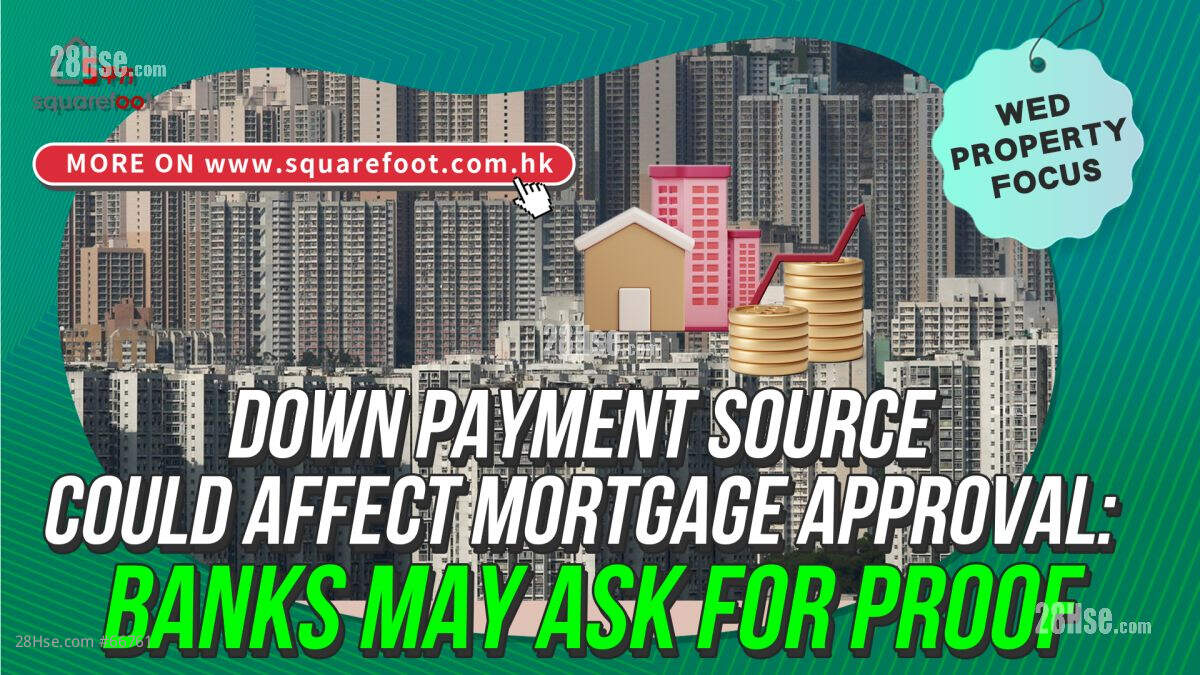- Home
- News
- Expert Blog
- Wed Property Focus
- Down Payment Source Could Affect Mortgage Approval: Banks May Ask For Proof
Hong Kong has been the world's most unaffordable housing market for 14 consecutive years. Last year, the affordability ratio was 16.7, meaning it would take a household 16.7 years of saving, without spending on anything else, to afford a home. Saving enough for the down payment is already challenging, but applying for a mortgage requires even more caution, as it can affect the approval process.
When applying for a mortgage, you need to fill out an application form that includes personal information and the property address. Additionally, banks typically require buyers to declare the source of their down payment to ensure that it is not borrowed. If you’re applying for a high loan-to-value mortgage through a mortgage insurance company, a similar declaration is required.
Common sources of down payment include savings, investment returns (e.g., from funds or stocks), sale of assets (e.g., cars or property), gifts from family, or loans. However, it’s important to note that both banks and mortgage insurers prohibit down payments sourced from loans. If your down payment is borrowed, your mortgage application is likely to be rejected.
After declaring the source of your down payment, banks may ask you to provide supporting documents. For example, if you claim the down payment comes from savings, you’ll need to provide bank statements showing sufficient funds. If you're paying an HK$800,000 down payment but your bank account only shows HK$400,000, the bank may question the legitimacy of the funds.
Different banks have varying policies and documentation requirements. If you declare that the down payment is a gift from family, the bank may ask your family member to provide their bank statements, and stricter banks might even require a written statement from them to verify the gift.
During the mortgage approval process, the source of the down payment is one of the factors considered. Even if you have enough funds, a previous loan history might lead the bank to suspect the down payment is borrowed, potentially resulting in a rejected application.
Does having a loan mean your mortgage application will definitely be rejected? Not necessarily. It depends on the bank’s policy and whether you have enough remaining funds to cover the down payment after accounting for the loan. Some banks may offer flexibility, such as requiring the loan to be repaid first or signing a declaration that the loan is not part of the down payment. However, mortgage insurers tend to be stricter, so approval might not be granted.
To avoid issues with your mortgage application, it’s best to clear any loans before applying, or avoid borrowing directly in your name. Instead, borrowing through family or third parties might make it harder for the bank to trace the funds, reducing the chance of your down payment being flagged as a loan and affecting the mortgage approval.
Some may wonder how a bank would know if the down payment is borrowed if it’s not disclosed. When you submit a mortgage application, you authorize the bank to check your credit report, which will reveal any past loan activity, making it impossible to hide.
Finally, it’s important to remember that providing false information about the source of your down payment could result in criminal charges. The key is to be honest and don’t take unnecessary risks.
Like


